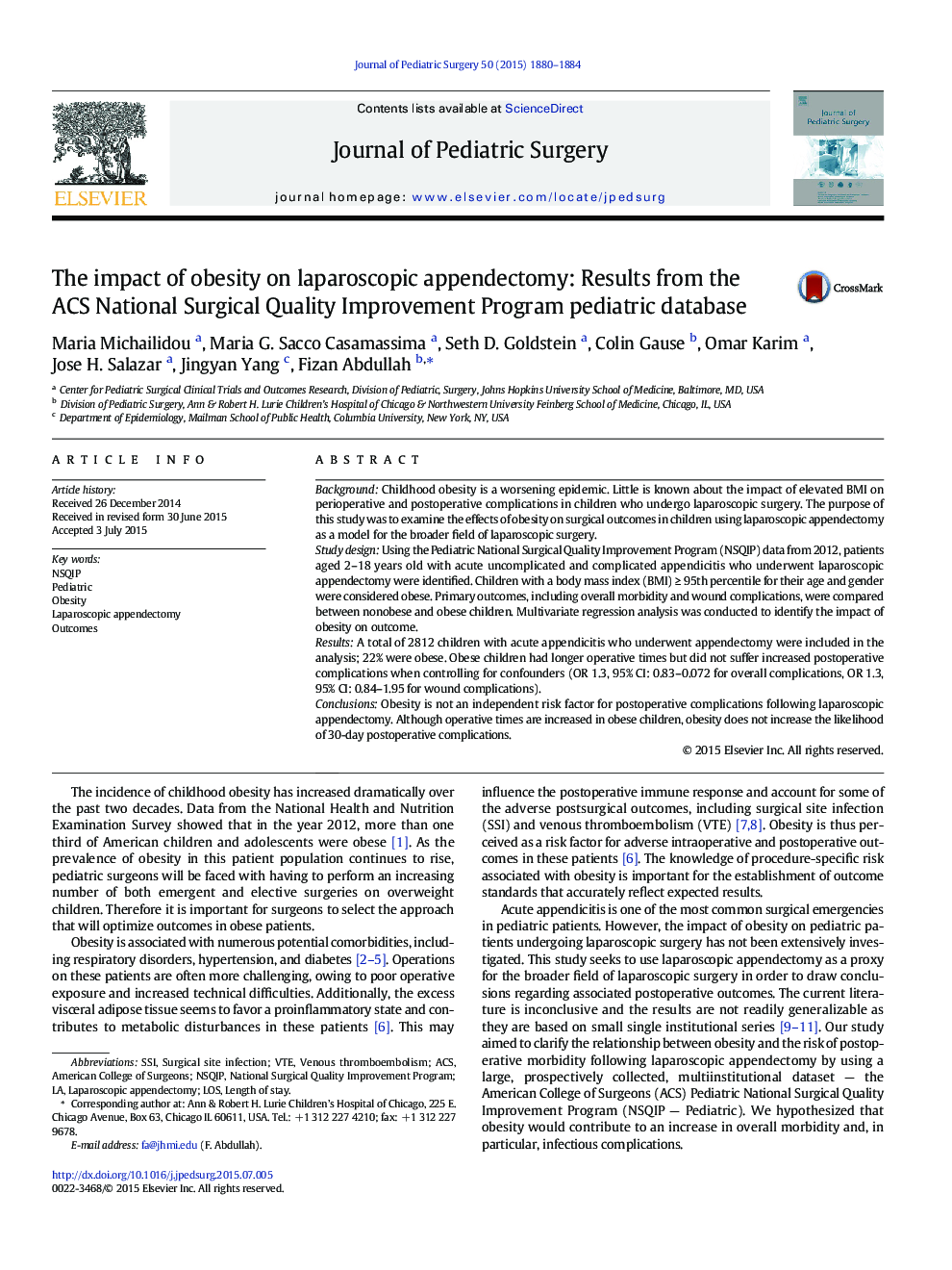| Article ID | Journal | Published Year | Pages | File Type |
|---|---|---|---|---|
| 4155097 | Journal of Pediatric Surgery | 2015 | 5 Pages |
BackgroundChildhood obesity is a worsening epidemic. Little is known about the impact of elevated BMI on perioperative and postoperative complications in children who undergo laparoscopic surgery. The purpose of this study was to examine the effects of obesity on surgical outcomes in children using laparoscopic appendectomy as a model for the broader field of laparoscopic surgery.Study designUsing the Pediatric National Surgical Quality Improvement Program (NSQIP) data from 2012, patients aged 2–18 years old with acute uncomplicated and complicated appendicitis who underwent laparoscopic appendectomy were identified. Children with a body mass index (BMI) ≥ 95th percentile for their age and gender were considered obese. Primary outcomes, including overall morbidity and wound complications, were compared between nonobese and obese children. Multivariate regression analysis was conducted to identify the impact of obesity on outcome.ResultsA total of 2812 children with acute appendicitis who underwent appendectomy were included in the analysis; 22% were obese. Obese children had longer operative times but did not suffer increased postoperative complications when controlling for confounders (OR 1.3, 95% CI: 0.83–0.072 for overall complications, OR 1.3, 95% CI: 0.84–1.95 for wound complications).ConclusionsObesity is not an independent risk factor for postoperative complications following laparoscopic appendectomy. Although operative times are increased in obese children, obesity does not increase the likelihood of 30-day postoperative complications.
